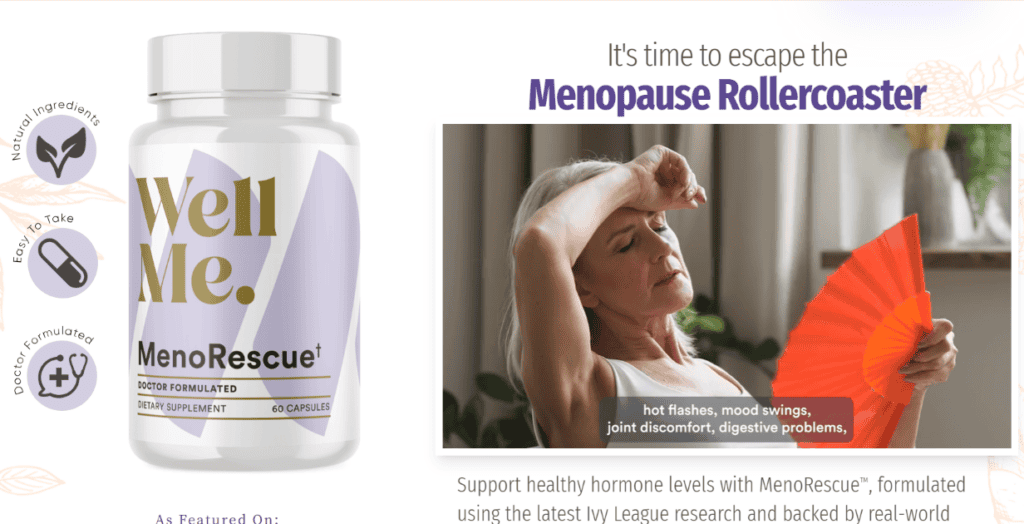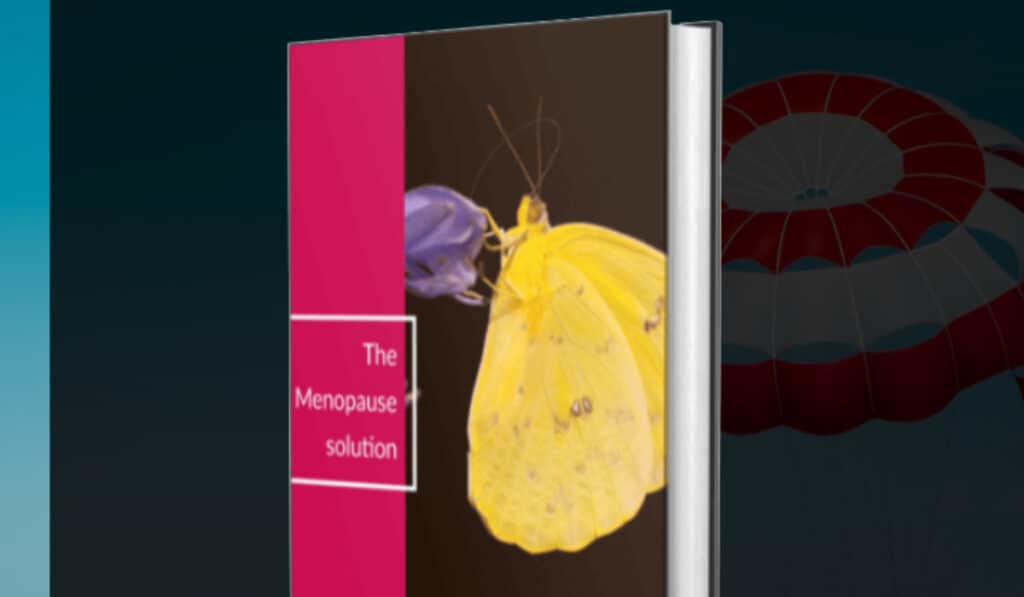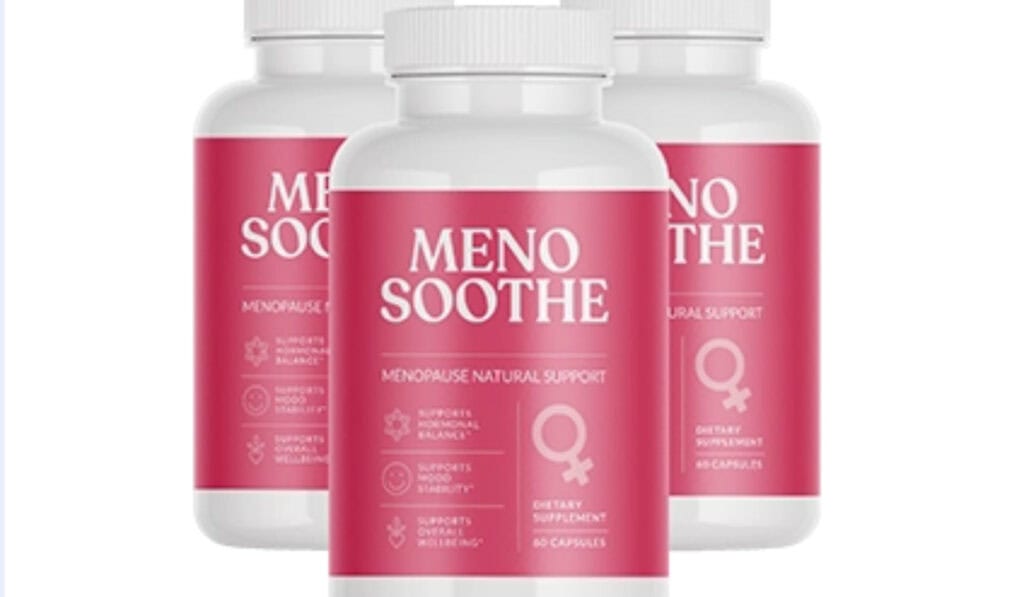A Holistic Approach
Menopause marks a significant shift in a woman’s life, bringing about hormonal imbalances that can affect metabolism, mood, and overall health. It’s a time when many seek natural ways to ease these transitions. Among the myriad of options, certain herbs and supplements stand out for their effectiveness in supporting metabolic health during this phase. Research shows that integrating these natural solutions can offer relief from menopause symptoms like hot flashes, vaginal dryness, and sleep disturbances while promoting hormonal balance.
Herbal remedies such as dong quai, known for its ability to relieve symptoms of menopause, and maca root, which research shows can improve hormone levels, are gaining popularity. These, along with supplements rich in omega-3 fatty acids, magnesium glycinate, and flax seeds, offer a holistic approach to managing perimenopause and menopause. They work not just on the physical aspects but also help in reducing stress and anxiety, lowering cortisol levels, and combating estrogen dominance.
Fruits and vegetables, rich in nutrients and antioxidants, form the cornerstone of any menopausal support regimen. Their inclusion in daily diets aids in maintaining a healthy weight and provides essential vitamins and minerals that combat health issues arising during menopause. Alongside, salvia officinalis (sage) and hypericum perforatum (St. John’s Wort) are recognized for their benefits in managing menopause symptoms and improving sleep quality.
To navigate through the complexities of hormonal shifts during menopause, it’s crucial to understand the role of these natural herbs and supplements. Consulting with a menopause specialist or a healthcare provider can help in crafting a personalized regimen that addresses specific health concerns, ensuring a smoother transition through menopause.
Embracing Natural Solutions for Menopausal Metabolism
Turning to herbal remedies offers a promising pathway to managing menopausal metabolism without the side effects often associated with conventional treatments. These natural solutions support the body’s hormonal balance, addressing the root cause of metabolic slowdowns during menopause. By integrating these remedies into your lifestyle, you can harness their power to maintain a healthy metabolism throughout this transitional phase.
Understanding the Role of Herbs and Supplements
During menopause, the body undergoes significant hormonal shifts that can impact overall health. Herbs and supplements play a crucial role in mitigating these effects, offering a natural approach to maintaining hormonal balance. Consulting with a menopause specialist can guide you in selecting the right combination of herbs and supplements, tailored to your body’s needs, ensuring effective relief from menopausal symptoms.
The Science Behind Natural Metabolic Boosters
Herbal remedies are not just age-old traditions; they’re backed by scientific research that underscores their benefits in supporting metabolism during menopause. These natural boosters work by stimulating the body’s metabolic processes, aiding in weight management, and improving energy levels. The efficacy of these remedies lies in their ability to interact with the body’s hormonal system, promoting balance and reducing symptoms associated with metabolic slowdown.
Incorporating these natural metabolic boosters into your daily routine can offer a sustained source of support throughout menopause. By understanding the science behind these remedies, you can make informed choices that contribute to your overall well-being during this significant phase of life.
Crafting a Personalized Menopause Support Regimen
Creating a menopause support regimen tailored to your individual needs is essential for effective symptom management. This involves identifying specific symptoms you wish to relieve and incorporating daily routines that address these concerns. Whether it’s incorporating herbal supplements to combat hot flashes or adjusting your diet to alleviate joint pain, personalizing your approach ensures that you receive the most benefit from your menopause management strategies.
Factors to Consider When Selecting Herbs and Supplements
When choosing menopause supplements, it’s crucial to consider factors such as existing health issues and potential interactions with other medications. Supplements that address specific concerns like joint pain can be particularly beneficial, but it’s important to research and consult healthcare professionals to ensure their safety and effectiveness. Additionally, understanding the source and quality of these supplements can help you make choices that are not only effective but also safe for long-term use.
Another key consideration is how these supplements fit into your overall lifestyle. For instance, integrating supplements that support sleep can be more effective when combined with good sleep hygiene practices. Tailoring your selection of herbs and supplements to match your daily routine and health goals can significantly enhance their effectiveness, leading to better management of menopause symptoms.
The Dynamic Seven: Herbs and Supplements for Menopause
Among the plethora of options for menopause relief, seven herbs and supplements stand out for their proven effectiveness in supporting hormonal balance and metabolic health. These include evening primrose oil, maca root, black cohosh, red clover, dong quai, chasteberry, and St. John’s Wort. Each of these offers unique benefits, from easing joint pain to improving mood and energy levels, making them essential components of a holistic menopause management strategy.
1. Evening Primrose Oil – Balancing Hormones Naturally
Evening primrose oil is renowned for its ability to naturally balance hormones, making it a valuable ally during menopause. Its rich content of gamma-linolenic acid (GLA) helps in managing hormonal changes during menopause, providing relief from symptoms such as hot flashes and mood swings. Incorporating evening primrose oil into your regimen can support a smoother transition through menopause.
Primrose Oil’s Influence on Weight and Skin Health
Evening primrose oil not only aids in balancing hormones but also has a positive impact on weight and skin health. Its ability to improve skin elasticity and hydration can be particularly beneficial for menopausal women, who often experience skin dryness and other changes. Additionally, by supporting hormonal balance, evening primrose oil can help in managing weight fluctuations often seen during menopause.
Integrating evening primrose oil into your daily routine can thus offer a two-fold benefit, addressing both internal hormonal changes and their external manifestations. This makes it a valuable component of a comprehensive menopause support strategy, promoting overall well-being during this transition.
2. Maca Root – Adaptogenic Power for Hormonal Harmony
Maca root stands out for its adaptogenic properties, offering powerful support for hormonal harmony. Research shows that maca root can significantly impact hormone levels, enhancing energy, mood, and overall health benefits. Its natural capacity to adapt to the body’s needs makes it an ideal supplement for women navigating the challenges of menopause.
Maca’s Impact on Energy Levels and Mood Stability
Incorporating maca root into your diet can have a profound effect on energy levels and mood stability, two common concerns during menopause. Its nutrient-dense composition, rich in vitamins and minerals, supports overall vitality, while its adaptogenic qualities help stabilize mood and reduce stress. By adding maca root to your daily intake, alongside a diet rich in fruits and vegetables, you can enhance your body’s resilience to the hormonal fluctuations of menopause.
Furthermore, the inclusion of maca root in your regimen can contribute to a balanced and nutritious diet, amplifying the benefits of healthy eating habits. Its versatility in culinary uses makes it easy to integrate into meals, ensuring you receive its full spectrum of health benefits as part of a holistic approach to menopause management.
3. Black Cohosh – A Menopausal Mainstay
Black cohosh has long been a mainstay in women’s health, particularly for those seeking natural relief from menopause symptoms. Its effectiveness in treating hot flashes, mood swings, and sleep disturbances makes it a popular choice among menopausal women. By targeting the root causes of these symptoms, black cohosh can significantly improve quality of life during this transitional period.
How Black Cohosh Eases Menopause Symptoms and Supports Metabolism
Black cohosh works by interacting with estrogen receptors, offering a natural way to support hormone balance and ease menopause symptoms. Its benefits extend beyond symptom relief, contributing to metabolic health by aiding in the management of weight and reducing the risk of metabolic-related issues. Incorporating black cohosh into your regimen can provide a multifaceted approach to managing menopause, addressing both physical and emotional aspects of this change.
Furthermore, its impact on metabolic health makes black cohosh a valuable tool for those navigating the challenges of menopausal weight management. By supporting hormonal balance and metabolism, black cohosh can help maintain a healthy weight, contributing to overall well-being during menopause.
4. Red Clover – Phytoestrogenic Support for Menopausal Women
Red clover offers phytoestrogenic support for menopausal women, acting as a natural source of estrogen to help balance hormone levels. Its efficacy and safety in managing menopause symptoms, including trouble sleeping and hot flashes, have made it a favored choice. By mimicking the body’s natural production of estrogen, red clover can alleviate a range of menopausal symptoms, supporting overall hormonal harmony.
Red Clover’s Role in Bone Health and Cardiovascular Well-being
The benefits of red clover extend to bone health and cardiovascular well-being, areas of concern for many menopausal women. Its isoflavones can help prevent bone density loss, reducing the risk of osteoporosis, while its impact on cardiovascular health supports a healthy heart and circulatory system. Integrating red clover into your menopause management plan can thus provide comprehensive health benefits, addressing both the immediate and long-term challenges of menopause.
Moreover, the phytoestrogenic properties of red clover make it an essential supplement for maintaining hormone balance and ensuring a smooth transition through menopause. Its safety and efficacy in supporting women’s health during this phase highlight its value as part of a holistic approach to menopause management.
5. Dong Quai – The Female Ginseng
Dong quai, often heralded as the female ginseng, stands out among herbal supplements for its unique benefits for post-menopausal women. It’s known to help alleviate symptoms associated with hormonal imbalances, making it a valuable ally during menopause.
Dong Quai’s Benefits for Menopausal Symptom Relief
Dong quai has been a cornerstone in traditional medicine for centuries, primarily for its effectiveness in easing menopausal symptoms. Its ability to enrich blood and promote circulation helps in balancing the body’s hormones, which is crucial for women navigating the challenges of menopause. By integrating dong quai into your routine, you may experience a natural easing of symptoms such as hot flashes and mood swings.
Moreover, dong quai’s impact extends beyond just hormonal balance. It also supports overall well-being, contributing to a more balanced emotional state. This makes dong quai not just a supplement for physical health, but a holistic aid that addresses the multifaceted nature of menopause.
6. Chasteberry (Vitex) – For Menstrual Regularity and More
Chasteberry, known for its positive impact on women’s health, has been shown to significantly reduce challenges faced by women experiencing menstrual irregularities. Its benefits extend into the realm of menopause, offering support during this transitional phase.
Chasteberry’s Effect on Hormonal Acne and PMS during Perimenopause
The transition into menopause can often bring about hormonal acne and PMS symptoms that are not only physically uncomfortable but also emotionally taxing. Chasteberry steps in as a natural remedy that has significantly reduced these symptoms in many cases. Its ability to regulate hormonal imbalances makes it a crucial supplement for women seeking relief from the tumultuous waves of perimenopause.
By incorporating chasteberry into their daily regimen, many have found a marked improvement in their overall skin health and a decrease in PMS-related discomfort. This herbal supplement stands out for its ability to provide a natural and effective approach to managing symptoms that can otherwise hinder the quality of life during this significant life stage.
7. St. John’s Wort – Mood Management During Menopause
St. John’s wort has gained acclaim for its positive effects on mood management, particularly beneficial for those navigating the complexities of menopause. By addressing the frequency and intensity of hot flashes, alongside gastrointestinal symptoms, anxiety, and depression, this herb offers a comprehensive solution for emotional and physical well-being.
St. John’s Wort and Its Impact on Depression and Sleep Quality
The journey through menopause often brings with it sleep disturbances and mood fluctuations that can significantly impact daily life. St. John’s wort has shown promising results in alleviating these symptoms, with particular effectiveness in reducing the frequency and intensity of hot flashes and improving sleep quality. Its natural antidepressant properties also offer relief from anxiety and depression, making it an invaluable tool for emotional regulation during this time.
Furthermore, by mitigating gastrointestinal symptoms that are commonly exacerbated during menopause, St. John’s wort supports overall physical health. This holistic approach to menopause management underscores the importance of addressing both the physical and emotional aspects, ensuring a smoother transition during this natural phase of life.
Augmenting Herbal Intake with Key Lifestyle Changes
To maximize the benefits of herbal supplements during menopause, integrating key lifestyle changes into your daily routine is crucial. These changes can significantly relieve symptoms and enhance overall well-being.
The Importance of Diet in Managing Menopause Symptoms
Navigating the menopausal transition requires more than just herbal support; a healthy diet plays a pivotal role. By choosing foods that balance hormones, you contribute to your heart and bone health, key areas affected by menopause. Tailoring your diet to meet these needs can ease the journey through menopause.
Foods to Embrace and Avoid for Hormonal Balance
During menopause, certain foods can exacerbate digestive issues and lead to further health problems. To maintain hormonal balance and support your well-being, it’s important to focus on a diet rich in fruits, vegetables, and whole grains while minimizing processed foods, caffeine, and sugar. This approach not only alleviates digestive issues but also contributes to a more stable and healthy hormonal environment.
Additionally, incorporating foods high in calcium and omega-3 fatty acids can support bone density and heart health, areas particularly vulnerable during menopause. By making these dietary adjustments, you can effectively manage symptoms and maintain a higher quality of life throughout the menopausal transition.
Regular Physical Exercise: A Pillar of Menopausal Health
Physical health and maintaining muscle mass are especially important during menopause. Regular exercise can help mitigate some of the physical changes that come with this stage of life.
Exercise Types That Support Metabolic and Emotional Well-being
Incorporating an exercise routine that includes a mix of cardiovascular, strength training, and flexibility exercises can have profound effects on both your physical and mental health. This holistic approach aids in managing stress and anxiety, while also supporting metabolic health and muscle mass maintenance.
Activities such as yoga and Pilates not only improve flexibility and strength but also promote mental health by reducing stress and anxiety. Regular participation in these types of exercises can significantly contribute to an improved quality of life during menopause, making them a vital component of your overall health regimen.
Mastering Stress Management and Sleep Hygiene
Effective stress management and addressing sleep issues are key to navigating menopause with ease. These elements are crucial in supporting your overall health and well-being during this time.
Techniques and Routines for Stress Reduction and Improved Sleep
Adopting stress management strategies, such as mindfulness meditation, deep breathing exercises, and regular physical activity, can significantly reduce the impact of stress on your life. When it comes to improving sleep quality, establishing a consistent bedtime routine and creating a sleep-conducive environment are fundamental steps. By prioritizing these aspects, you can alleviate some of the common challenges associated with menopause, leading to a more balanced and enjoyable life.
Furthermore, exploring complementary and alternative medicine options, such as acupuncture and massage therapy, can offer additional support in managing stress and enhancing sleep quality. These practices, along with conventional stress management techniques, form a comprehensive approach to maintaining well-being during menopause.
Beyond Herbs: Supplemental Support for Menopause
While herbs play a significant role in managing menopause symptoms, additional supplemental support can address specific concerns such as joint pain, further enhancing your quality of life during this transition.
Essential Vitamins and Minerals for Optimal Health
Including essential vitamins and minerals in your regimen is crucial for addressing joint pain, managing menopause symptoms, and supporting overall health. Omega-3 fatty acids, found in flax seeds and pumpkin seeds, help reduce inflammation and improve heart health. Probiotic supplements contribute to gut health and hormone balance, while B vitamins aid in managing sleep problems and insulin resistance. Integrating these nutrients into your diet can significantly improve your well-being during menopause.
Vitamin D, Omega-3s, and Calcium – Building Blocks of Well-being
Vitamin D, Omega-3 fatty acids, and Calcium play crucial roles in maintaining your health during menopause. Vitamin D is essential for bone health and immune function, which is vital as hormone levels fluctuate. Omega-3s, found in fish oil and flaxseeds, support heart health and may help in managing mood swings. Calcium is necessary to combat the increased risk of osteoporosis during menopause. Together, these nutrients can help keep your body strong and capable of handling the changes it’s going through.
Incorporating foods rich in these nutrients into your diet is a straightforward way to boost your intake. Fatty fish like salmon and mackerel, along with chia seeds and walnuts, are excellent sources of Omega-3s. Dairy products and leafy greens can provide the Calcium your body needs, while sunlight exposure and foods like egg yolks and fortified milk can increase your Vitamin D levels. Supplements may also be considered if getting enough through diet alone is challenging, but always consult with a healthcare provider first.
The Role of Probiotics in Digestive Health During Menopause
During menopause, changes in hormone levels can disrupt your gut health, leading to discomfort and bloating. Probiotics, the beneficial bacteria found in yogurt and fermented foods, can help restore the balance in your digestive system. They aid in digestion and can help keep your gut flora healthy, mitigating some of the digestive issues that can accompany menopause.
Gut Health as a Foundation for Metabolic and Emotional Health
A healthy digestive system is more crucial during menopause than you might think. It not only helps in digesting food but also plays a significant role in your overall emotional well-being. The gut is often referred to as the “second brain” because of its impact on mood and stress levels. By maintaining a balanced gut microbiome with the help of probiotics, you can support your metabolic health while potentially easing menopausal mood swings and stress.
Regular consumption of probiotic-rich foods like kefir, sauerkraut, and kimchi, or taking a high-quality probiotic supplement, can make a noticeable difference. These habits support your body’s natural processes, helping you manage weight and maintain a positive mood through perimenopause and menopause.
Navigating the Challenges of Weight Gain During Menopause
Weight gain is a common concern during menopause, largely due to the shifting hormone levels and a natural decrease in muscle mass. Understanding that these changes are a normal part of aging can help you approach weight management with a gentle and effective strategy. Focusing on nutrition, maintaining an active lifestyle, and managing stress levels can collectively support your metabolism.
It’s also important to recognize that weight gain isn’t solely about aesthetics; it can impact your overall health, including increased risks for heart disease and diabetes. By adopting a holistic approach that includes balanced eating, regular physical activity, and stress management, you can navigate these changes more smoothly and maintain your health and well-being.
Strategies for Maintaining a Healthy Weight
Maintaining a healthy weight during menopause involves a combination of balanced nutrition, regular exercise, and stress management. Opt for a diet rich in fruits, vegetables, lean proteins, and whole grains. Incorporating an exercise routine that includes both cardio and strength training can help counteract muscle loss and support your metabolism. Managing stress through meditation, yoga, or deep-breathing exercises can also help prevent stress-related eating.
The Interplay Between Metabolism, Exercise, and Nutrition
The relationship between metabolism, exercise, and nutrition becomes increasingly important during menopause. As your metabolic rate may slow, focusing on nutrition and exercise can help maintain a healthy weight. A balanced diet rich in nutrients supports your body’s needs, while regular exercise, particularly strength training, can counter muscle loss and keep your metabolism active. An exercise routine tailored to your preferences and capabilities can make staying active more enjoyable and sustainable.
Moreover, understanding how certain foods can affect your hormone levels and overall energy can empower you to make informed choices about your diet. Combining these with consistent physical activity not only aids in weight management but also boosts your mental health, providing a comprehensive approach to navigating menopause.
When to Consider Professional Guidance
Menopause brings a myriad of changes, and while many can be managed through lifestyle adjustments, some situations require professional guidance. If you’re experiencing severe symptoms, such as intense hot flashes, significant sleep disturbances, or mood swings that affect your daily life, it might be time to seek help. A healthcare provider can offer personalized advice and treatment options, including hormone therapy or other medications.
Additionally, if lifestyle changes aimed at managing weight, mood, or other menopause-related concerns aren’t yielding the results you hoped for, a professional can offer tailored strategies and support. They can help identify underlying issues that may be contributing to your symptoms and work with you to develop a comprehensive plan for managing them.
Recognizing Signs That It’s Time to Seek Help
It’s crucial to recognize when menopause symptoms are beyond what’s manageable on your own. If you’re struggling with severe sleep disturbances, mood swings, or other symptoms that significantly impact your quality of life, it’s time to consider reaching out for professional help. These signs indicate that your body may need more than just lifestyle changes to navigate this phase smoothly.
Holistic Health Practitioners and Menopause Specialists
Holistic health practitioners and menopause specialists can offer a comprehensive approach to managing menopause symptoms. These professionals look beyond traditional treatments, incorporating lifestyle changes, dietary advice, and natural supplements into your care plan. They understand the complexity of menopause and can provide personalized strategies that address both physical and emotional aspects of this transition.
Whether it’s recommending specific exercises to strengthen your bones, advising on diet changes to balance hormone levels, or suggesting herbal supplements to ease symptoms, these experts can be invaluable resources. Building a partnership with a healthcare provider who specializes in menopause can empower you to navigate this phase with confidence and support.
The Wider Impact of Menopause on Well-being
Menopause is more than just physical symptoms; it can profoundly impact every aspect of your well-being. The hormonal shifts experienced during this time can influence your mental health, emotional state, and even social interactions. Understanding this wider impact is crucial for adopting a holistic approach to managing menopause, emphasizing the importance of support networks and coping strategies.
Menopause and Its Relationship with Mental Health
The hormonal changes during menopause can significantly affect your mental health. Fluctuating hormone levels are linked to increased instances of anxiety and depression among menopausal women. Recognizing this connection is the first step towards seeking the right support and treatment, ensuring mental health is prioritized alongside physical health during this transitional period.
Coping Mechanisms and Support Networks
Developing effective coping mechanisms and building strong support networks are vital strategies for navigating menopause. Techniques such as mindfulness meditation, regular physical activity, and engaging in hobbies can help manage stress and improve mood. Support networks, whether they consist of friends, family, or menopause support groups, provide a platform for sharing experiences and receiving encouragement. These networks can offer invaluable understanding and companionship, helping to mitigate the sense of isolation that can sometimes accompany menopause.
Moreover, participating in workshops or seminars focused on menopause can provide additional coping strategies and knowledge. These gatherings offer insights into managing symptoms and adapting to changes, reinforcing the idea that you’re not alone in this journey. By embracing these mechanisms and networks, you can navigate menopause with greater resilience and positivity.
Hormonal Shifts and Their Effect on Overall Health
The hormonal shifts during perimenopause and menopause can have a profound effect on your overall health. These changes can influence everything from your cardiovascular health to bone density, highlighting the importance of managing symptoms and making lifestyle adjustments. Recognizing the broad impact of these hormonal shifts is key to taking proactive steps towards maintaining your health during menopause.
Long-Term Strategies for a Balanced Life Post-Menopause
Adopting long-term strategies for maintaining hormonal balance and overall health is essential for a fulfilling life post-menopause. This includes a balanced diet rich in nutrients, regular physical activity, and stress management techniques. Ensuring adequate intake of vitamins and minerals supports bone health and reduces the risk of osteoporosis, while exercise keeps your heart healthy and your body strong.
Additionally, engaging in activities that promote mental well-being, such as socializing, pursuing hobbies, and lifelong learning, can enhance your quality of life. Embracing these strategies not only helps manage menopause symptoms but also sets the foundation for a healthy, vibrant life in the years that follow. By focusing on your well-being holistically, you can navigate menopause with confidence and optimism.
Empowering Your Menopausal Journey with Knowledge and Support
Empowering yourself with knowledge about menopause and the support available can transform this period from one of uncertainty to one of positive growth and well-being. Understanding the physical changes, such as hormonal shifts and symptoms like vaginal dryness and sleep problems, allows you to seek out effective remedies and adjustments. Knowledge about these aspects of menopause equips you to make informed decisions about your health and lifestyle.
Equally important is seeking out and embracing support from healthcare providers, peer support groups, and educational resources. These sources of support can offer personalized advice, share experiences, and provide encouragement, making the journey through menopause less daunting. By arming yourself with knowledge and surrounding yourself with a supportive community, you can navigate the challenges of menopause with confidence and grace.
Learning from Personal Experiences and Scientific Research
Combining personal stories with scientific evidence creates a powerful tool for understanding menopause. A mixture of systematic review and meta-analysis can unearth patterns and solutions that one-size-fits-all advice cannot. For instance, studies comparing agnus-castus extracts with placebo in reducing menopausal symptoms provide a scientific backbone to the anecdotal relief many women report. These insights guide you in making informed decisions, blending the wisdom of shared experiences with the credibility of research.
Community Forums and Resource Centers for Menopausal Women
Community forums offer a sanctuary where you can share your journey and learn from others navigating the same path. These platforms provide a wealth of personal insights and tips, from managing hot flashes to finding the right herbal supplements. The collective wisdom found here is invaluable, offering support and understanding that can make a significant difference in how you experience menopause.
Resource centers, on the other hand, serve as libraries of knowledge, from the latest scientific findings to holistic approaches for symptom management. They often compile information on the effectiveness of natural supplements, comparing extracts with placebo in reducing menopausal symptoms, and present it in a way that’s easy to understand. These centers can be vital in helping you make informed decisions about your health, offering a blend of science and personal experience.
A Comprehensive Conclusion: Thriving Through Menopause
Menopause is a complex journey, but with the right approach, it can be navigated successfully. Embracing a multifaceted strategy that includes natural herbs, lifestyle adjustments, and community support can make a significant difference. Understanding the role of herbs and supplements, and integrating key lifestyle changes such as diet and exercise, empowers you to manage symptoms more effectively. Remember, each woman’s experience is unique, and what works for one may not work for another, making it essential to tailor your approach.
Ultimately, thriving through menopause requires patience, persistence, and positivity. It’s about listening to your body, learning from others, and leaning on scientific research to guide your choices. With these tools, you can navigate the challenges of menopause, maintaining your health, well-being, and quality of life. Remember, you’re not alone in this journey, and with the right support and information, you can emerge stronger on the other side.
Embracing a Multifaceted Approach to Menopausal Support
Addressing menopause effectively demands a holistic strategy. Consider natural plant supplements known for their estrogenic effects, which can alleviate vasomotor symptoms and aid in improving sleep. Yet, it’s crucial to combine these with lifestyle changes. In the United States, a placebo-controlled trial underscored the importance of comprehensive care for women during menopause, highlighting that addressing health issues with a broad approach leads to better outcomes. This method ensures you’re not just treating symptoms but nurturing overall well-being.
The Importance of Patience, Persistence, and Positivity
Embarking on this menopausal journey, patience is your ally. Your body is undergoing significant changes, and adjustments to supplements and lifestyle might not yield instant results. Persistence is equally crucial; sticking with your regimen, even when progress seems slow, can lead to meaningful improvements over time. Positivity, the belief in a better state of health and well-being, can propel you forward, transforming challenges into stepping stones toward a balanced life.
Remember, this journey is as much about discovering what works for you as it is about adapting to new changes. With each step, you learn more about your body and how to support it during this significant life stage. Empower yourself with knowledge, lean on your community for support, and approach each day with a positive mindset. These attributes will not only help you manage menopause symptoms but also enhance your overall quality of life.





